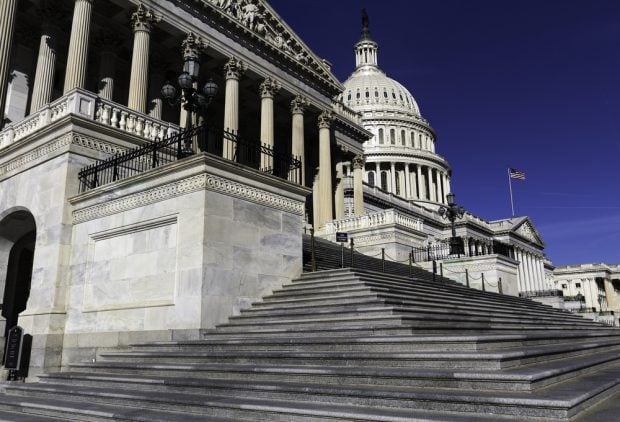Credit unions are in the risk business. If you don't take risk,you go out of business. It's as simple as that. However, take toomuch risk and you go out of business, too.
|So modify that to credit unions and other financial institutionsare in the risk mitigation business. Some do a better job ofmitigating risk than others. Some are able to operate moreprofitably than others by better assessing risk. Some whitherbecause they don't take enough risk. Particularly during thiseconomic crisis, many companies and financial institutions sitparalyzed by fear of the risks rather than assessing and adaptingto them.
|Risk comes from all sides at credit unions. Credit unions riskhiring the wrong executive and sullying the institution'sreputation; they risk losing money with every loan they make; andthey can lose opportunities with the risk not taken.
|The cooperative nature of credit unions in particular canmagnify the risk because the industry is so interdependent as weall quickly learned when the U.S. Central, WesCorp and other corporates went south.Certainly, credit unions lost money and are continuing to losemoney based on investments the corporates made, which the NCUA didnot catch and the trade associations should have been more mindfulof.
|I do find it particularly troublesome in this cooperative systemthat many credit union executives fail to recognize what elsecredit unions have lost from the corporate meltdown. Who sponsoredmany of the charity golf tournaments credit unions like to hold(and executives love to play in)? When a CEO needed a lendingportfolio analysis last minute to present to the board, who oftenprovided it? What processes were your credit unions able tooutsource to your corporates cheaper than anywhere else?
|Yet when Georgia Credit Union Affiliates CEO Mike Mercer dared to suggestthat credit unions deserved some of the blame for the corporatemeltdown, our online readers refused to take any of theresponsibility. Take your medicine folks: Natural person creditunions were not blameless. Some credit unions were threatening toleave the corporate system over yield and, if enough money funneledout, that could have precipitated the extreme downsizing, if notdownfall, of the corporate system without a financial crisis. Socorporate credit unions, under pressure from some of the membersthey exist to serve, took a risk that ended badly in a crisis thatonly a very few even saw coming.
|U.S. Central and WesCorp took too much risk and lost. It is atragedy, but it is also the nature of the business. NPCUs have doneit too and will continue to, costing the NCUSIF and credit unionsmillions, if not billions.
|Credit unions and the NCUA can work to reshape the corporates inhopes of preventing the next crisis, but it will always come. Theyalways do; that's risk.
|Lawmakers and regulators work to stave off the next crisis. Takefor example how deposit insurance wascreated out of the Great Depression. Consumer panic has beenabated in this crisis as demonstrated by the lack of runs on thefinancial institutions over the last couple of years. However, theissue of moral hazard still rears its head despite the generalsuccess of deposit insurance.
|Recently, Matt Davis of the Filene Research Institute wrote inhis Credit Union Warrior blog that deposit insurance should beabolished and the customers of the financial institutions should beresponsible for obtaining and understanding the balance sheets. I'mvery much in favor of personal responsibility but expecting thelayman to be able to comprehend a balance sheet and what it couldindicate is fantasy. Consumers aren't too stupid or lazy, but theyhave copious issues to deal with in a day ranging from putting foodon the table to credit card disclosures to appointments withpediatricians.
|Comments flew back and forth on both sides of the debate, butone that is always top of mind for me is the PR angle. The loss inconsumer confidence with the disappearance of federal depositinsurance in the banking system would kill it.
|Davis pointed out that the NCUSIF does not allow forrisk-weighted deposit insurance assessments, which is definitely aflaw in the system. As international eyes are currently onrisk-weighting of capital, and CUNA President/CEO Bill Cheneyannounced capital reform for credit unions as a top priority lastweek, so should the deposit insurance assessments berisk-based.
|Deposit insurance should also be opt-in, according to Davis, andcooperative or third-party providers should be permitted, an optionlimited currently to state-chartered credit unions in a handful ofstates through American Share Insurance.
|Cooperation plays the dual role of friend and foe when it comesto risk. Credit unions could better control what other institutionsthey were doing business with in a private deposit insurance pool,but those putting more money in would likely expect more control.That said, there's nothing I know of beyond a lot of hard workkeeping credit unions from pooling together and starting a depositinsurance CUSO. Is this a risk worth taking?
|–Comments? Email [email protected]
Complete your profile to continue reading and get FREE access to CUTimes.com, part of your ALM digital membership.
Your access to unlimited CUTimes.com content isn’t changing.
Once you are an ALM digital member, you’ll receive:
- Critical CUTimes.com information including comprehensive product and service provider listings via the Marketplace Directory, CU Careers, resources from industry leaders, webcasts, and breaking news, analysis and more with our informative Newsletters.
- Exclusive discounts on ALM and CU Times events.
- Access to other award-winning ALM websites including Law.com and GlobeSt.com.
Already have an account? Sign In
© 2024 ALM Global, LLC, All Rights Reserved. Request academic re-use from www.copyright.com. All other uses, submit a request to [email protected]. For more information visit Asset & Logo Licensing.









